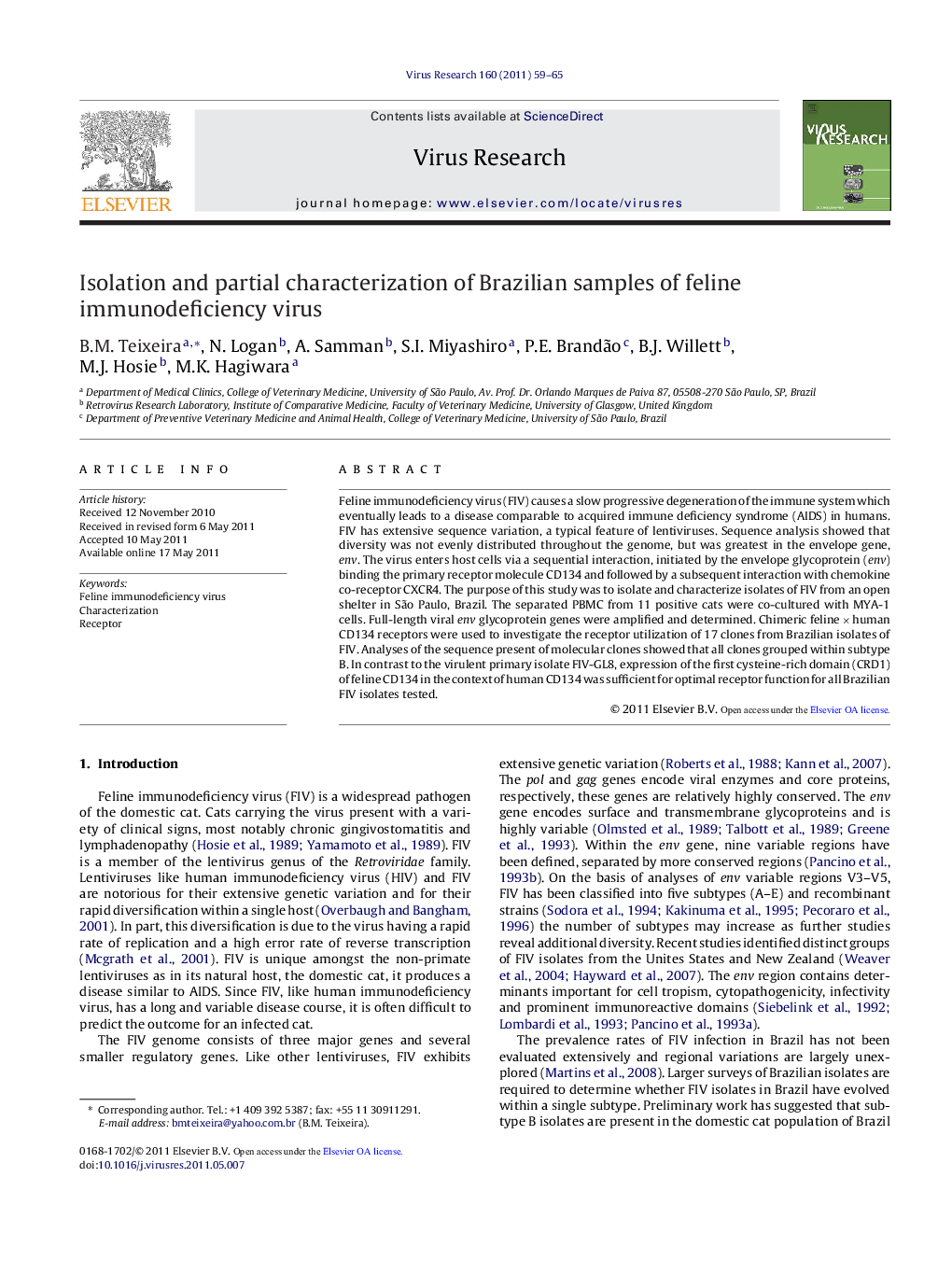| Article ID | Journal | Published Year | Pages | File Type |
|---|---|---|---|---|
| 6143344 | Virus Research | 2011 | 7 Pages |
Feline immunodeficiency virus (FIV) causes a slow progressive degeneration of the immune system which eventually leads to a disease comparable to acquired immune deficiency syndrome (AIDS) in humans. FIV has extensive sequence variation, a typical feature of lentiviruses. Sequence analysis showed that diversity was not evenly distributed throughout the genome, but was greatest in the envelope gene, env. The virus enters host cells via a sequential interaction, initiated by the envelope glycoprotein (env) binding the primary receptor molecule CD134 and followed by a subsequent interaction with chemokine co-receptor CXCR4. The purpose of this study was to isolate and characterize isolates of FIV from an open shelter in São Paulo, Brazil. The separated PBMC from 11 positive cats were co-cultured with MYA-1 cells. Full-length viral env glycoprotein genes were amplified and determined. Chimeric feline Ã human CD134 receptors were used to investigate the receptor utilization of 17 clones from Brazilian isolates of FIV. Analyses of the sequence present of molecular clones showed that all clones grouped within subtype B. In contrast to the virulent primary isolate FIV-GL8, expression of the first cysteine-rich domain (CRD1) of feline CD134 in the context of human CD134 was sufficient for optimal receptor function for all Brazilian FIV isolates tested.
⺠The purpose of this study was to isolate and characterize isolates of FIV from an open shelter in São Paulo, Brazil. ⺠Full-length viral env glycoprotein genes were amplified and determined. ⺠Chimeric feline Ã human CD134 receptors were used to investigate the receptor utilization of 17 clones from Brazilian isolates of FIV. ⺠Analyses of the sequence present of molecular clones showed that all clones grouped within subtype B and in contrast to the virulent primary isolate FIV-GL8, expression of the first cysteine-rich domain (CRD1) of feline CD134 in the context of human CD134 was sufficient for optimal receptor function for all Brazilian FIV isolates tested.
